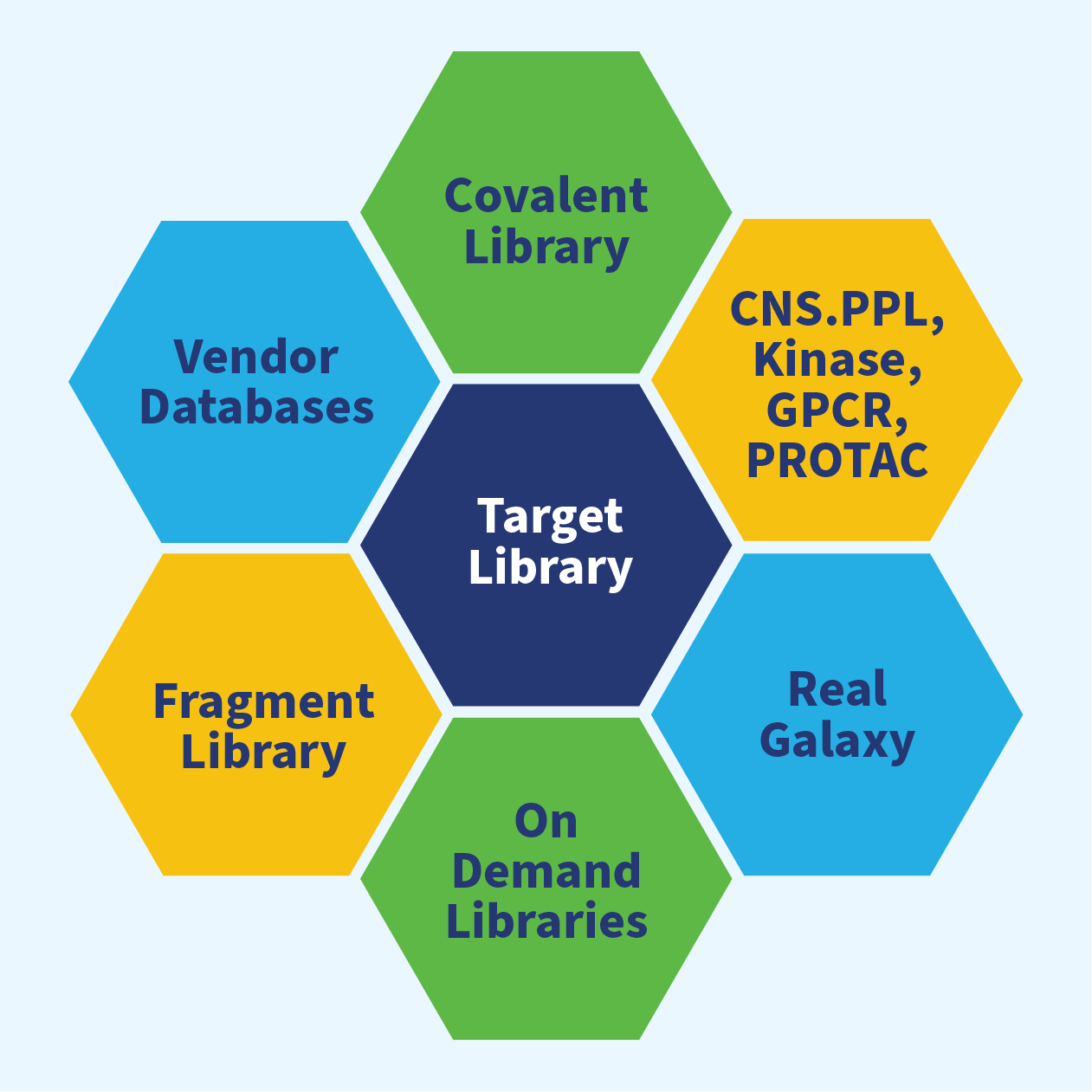Services
Chemoinformatics
The chemoinformatics team at Jubilant Biosys is engaged in developing or deploying various CADD protocols for creating, managing, and analyzing data during the DMTA cycle for enabling effective hypothesis generation and decision-making in the various phases of preclinical discovery. We deploy in-house developed and state-of-the-art tools: KNIME, Datawarrior, CDD vault, Canvas, Cresset, RDKit, etc. for various Chemoinformatics activities. Some of the key activities include:
Target / Hit triage
Target Triage
In-Silico analysis of the Target (Protein) of interest. It includes analysis of target:
Hit Triage
In-silico compilation and analysis of screening (In-vitro / phenotypic) output including clustering, Phys-chem property space, Ligand efficiency indexes, catalog SAR, and predictive ADME properties to enable decision-making on the selection of Active / Hit series by the Project team.
Compound Library Design
The availability of a good quality compound collection and library design expertise is an essential feature for the drug discovery DMTA cycle. At Jubilant Biosys, our expertise includes catering to different aspects of Compound Library Design (CLD) for developing project-specific libraries for screening in relevant biological assays or through Virtual screening. These libraries feature chemotypes enriched with diversity as well as compounds possessing desired properties and functionalities. Our strategic compilation of compound libraries ensures rapid synthesis and expediting Structure-Activity Relationship (SAR) or DMTA cycles across various discovery phases.
Approaches to Compound Library Design
Utilizing different in-silico methods, we design focused arrays of compounds for parallel synthesis. With curated sets of available reagents, we enumerate compounds accessible through current chemistry, subsequently prioritizing compounds for synthesis by deploying various CADD protocols:
Databases for Virtual Screening
At Jubilant Biosys, we have meticulously curated an extensive in-silico lead-like library (commercially purchasable) comprising over 5 million compounds, optimized for high-throughput virtual screening. On-demand databases (REAL / Galaxy) could also be considered.

We utilize physicochemical property filters, fingerprint clustering, and diversity analysis to curate and enhance our fragment/lead-like library, elevating its quality for lead discovery.